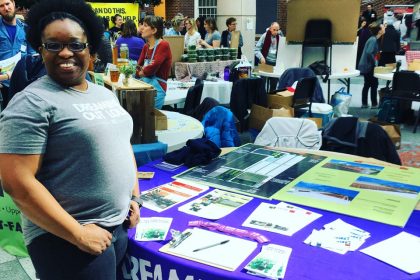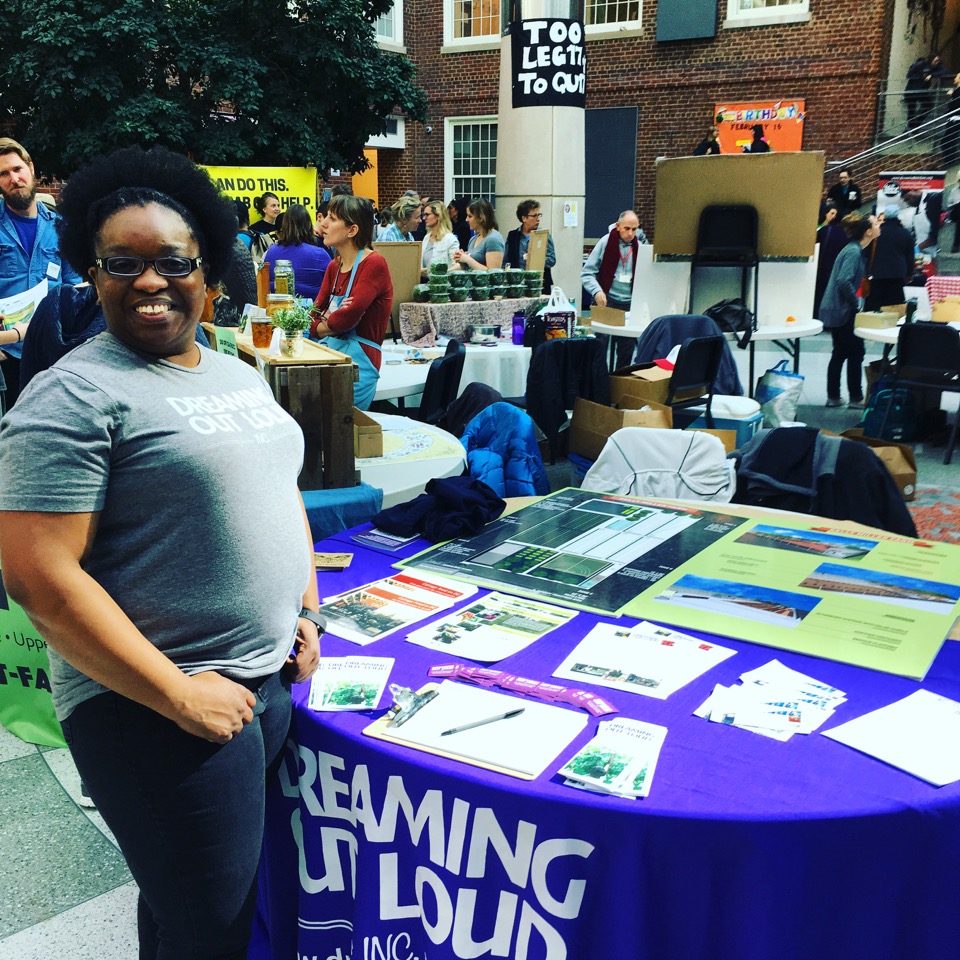
“To build community requires vigilant awareness of the work we must continually do to undermine all the socialization that leads us to behave in ways that perpetuate domination.” – bell hooks
Similar to other “helping professions” like teaching and social work, white women make up a large percentage of the nonprofit workforce. Those percentages drop precipitously for all women in executive leadership and boardroom positions, but we are still in a unique position to change business as usual. At the Chesapeake Foodshed Network (CFN), we believe that achieving equity in our food system demands daily introspection, conversation, and action. Transformation can happen when we as white women shed some fragility and defensiveness and replace them with curiosity and introspection. In the words of Debby Irving, “allowing ourselves to be vulnerable enough to expose our ignorance and insecurities takes courage.” In a culture where whiteness has been socially constructed, empowered, and resourced through access to land, wealth, and power, if we are truly invested in an equitable and just food system, we must learn how to better listen and support instead of leading at times. We must take a deep look at ourselves AND our organizational policies, programs, procedures, processes, and funding allocation to answer some of our toughest questions.
In the summer of 2015, Town Creek Foundation convened a group of funders to meet with network specialist, Curtis Ogden, to discuss collective development of a regional food system vision and plan to be shepherded by the CFN. Charged with catalyzing connections and collaborations to build a sustainable, resilient, inclusive, and equitable regional food system for the Chesapeake Bay region, the CFN organized a summit of 100 regional thought leaders to unpack major trends in regional food system efforts. It was evident that folks were tired of talking and it was time for some action. The CFN began work on an Action Framework, a stakeholder-driven approach to food system reform designed to yield prioritized regional strategies for implementation, indicators of progress and fundable action.
 Since the CFN already had an active food waste and recovery working group and assessments had indicated stakeholders found this issue to be important, it seemed like a no-brainer to move forward with an Action Framework focused on recovering food and reducing waste. Brandy Brooks of Dreaming Out Loud, Inc. felt differently, “Who’s deciding this? Is this the most important priority for our communities right now? In the communities I work in, we’re having very different conversations.” Priority issues in the communities she works with involve power, resource allocation, community ownership and community-driven solutions for food system problems. Dreaming Out Loud’s mission is to create economic opportunities for the DC metro region’s marginalized community members by building a healthy, equitable food system. They envision resilient communities with equitable economic opportunity, family-supporting wages, high quality education for all, and a healthy environment.
Since the CFN already had an active food waste and recovery working group and assessments had indicated stakeholders found this issue to be important, it seemed like a no-brainer to move forward with an Action Framework focused on recovering food and reducing waste. Brandy Brooks of Dreaming Out Loud, Inc. felt differently, “Who’s deciding this? Is this the most important priority for our communities right now? In the communities I work in, we’re having very different conversations.” Priority issues in the communities she works with involve power, resource allocation, community ownership and community-driven solutions for food system problems. Dreaming Out Loud’s mission is to create economic opportunities for the DC metro region’s marginalized community members by building a healthy, equitable food system. They envision resilient communities with equitable economic opportunity, family-supporting wages, high quality education for all, and a healthy environment.
Brandy Brooks serves as Director of Programs and was pleased with the receptiveness of the mostly white team. In her experience, that is not always the case and conversations about equity can be met with resistance by well-meaning white folks who aren’t quite ready for substantive change in processes, planning and resource allocation, even when equity is a stated core value. Or they might just not know where to begin. As a result, the team was able to ask more probing questions, get deeper into courageous conversations, and invite more voices to a more equitable process, TOGETHER. The Community Ownership, Empowerment, and Prosperity Action Framework began to take shape as the strong foundation on which other action frameworks across food system sectors can be built. The Action Framework structure they have developed follows a recurring two-year cycle through four phases. Anticipated outcomes include but are not limited to leveraged resources and aligned funding for implementation, especially for historically under-resourced groups, and increased community participation and capacity for action across the regional food system. The team is currently in Phase II and in the process of attracting funding to move forward.
In her presentation to potential funders and stakeholders, Brandy outlines three guiding principles to support community ownership in the food system:
- Community Leadership & Control: Community members must determine primary goals and outcomes and shifts in power and privilege must accompany decisions about resources and policies.
- Intersectionality: Food issues don’t happen in silos; they intersect with many other important issues: housing, land use, water rights, environmental justice, education, etc. We might have to start in a different place than we thought.
- Don’t Skip Your Own Work: Dominant groups must work to understand privilege and supremacy in all of its forms and to be committed to the uncomfortable process to examine assumptions and false narratives. This is essential if we claim to take food justice and equity seriously.
As we do the tough internal and external work equity takes, we can move towards real truth and reconciliation, sustainable equity rooted in justice, and the cooperation our culture will need to meet the food system challenges and opportunities of this century.
Sonia Keiner is the Communications Director for the Chesapeake Foodshed Network. Sonia’s professional background is rooted in multicultural education, food justice, permaculture and the arts. Her first understanding of her whiteness came to her at a young age from her mother with an explanation about genetic mutation.




